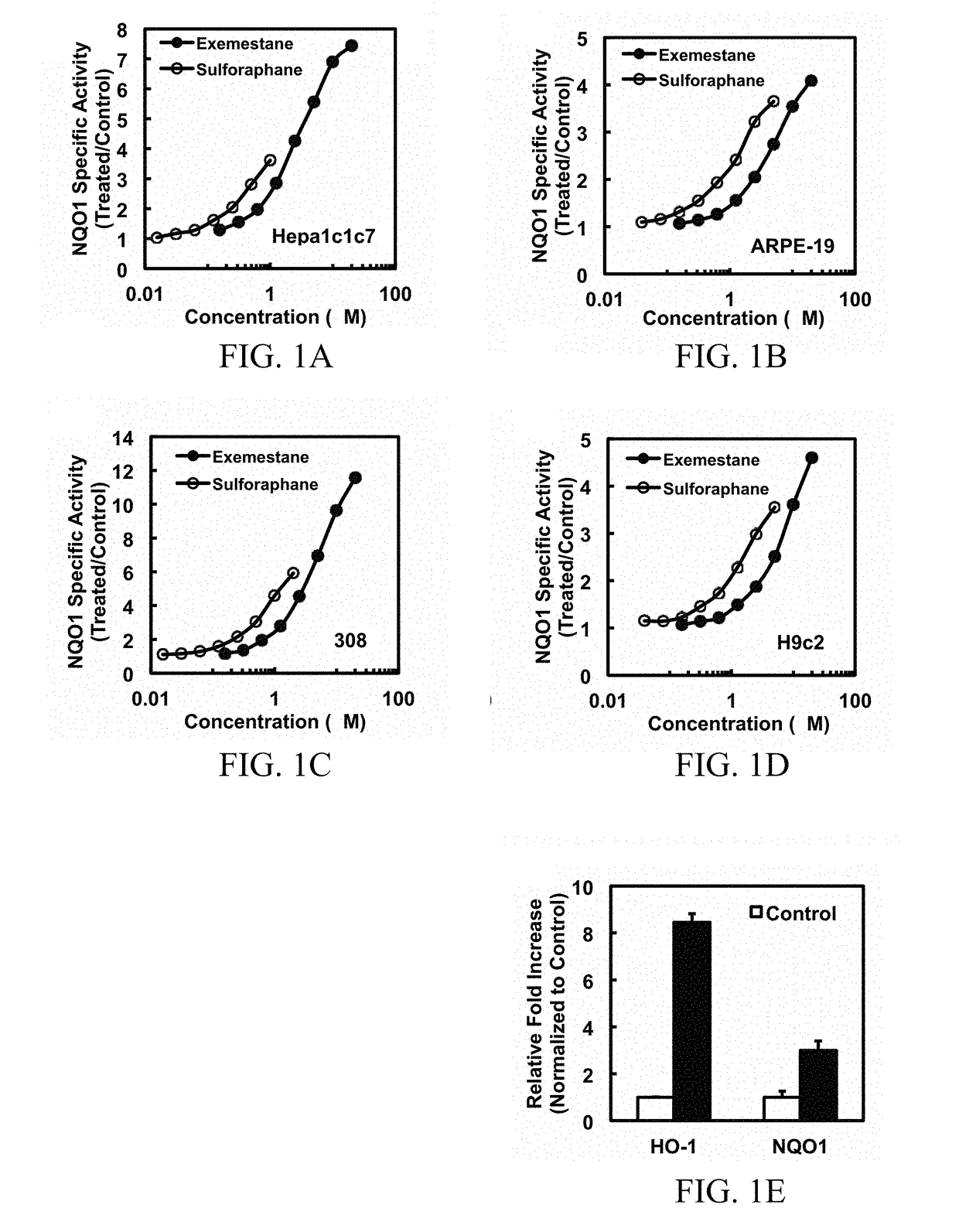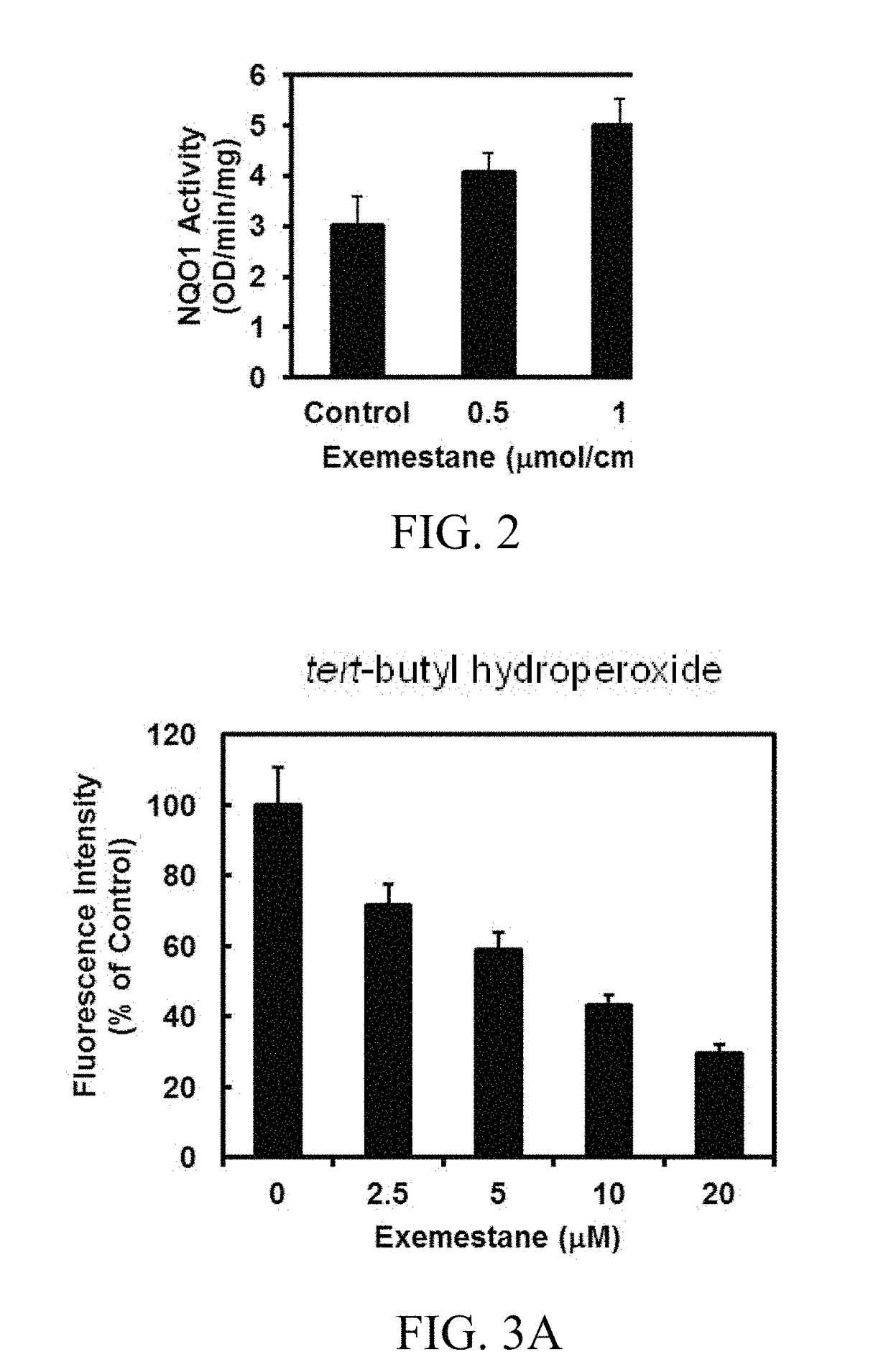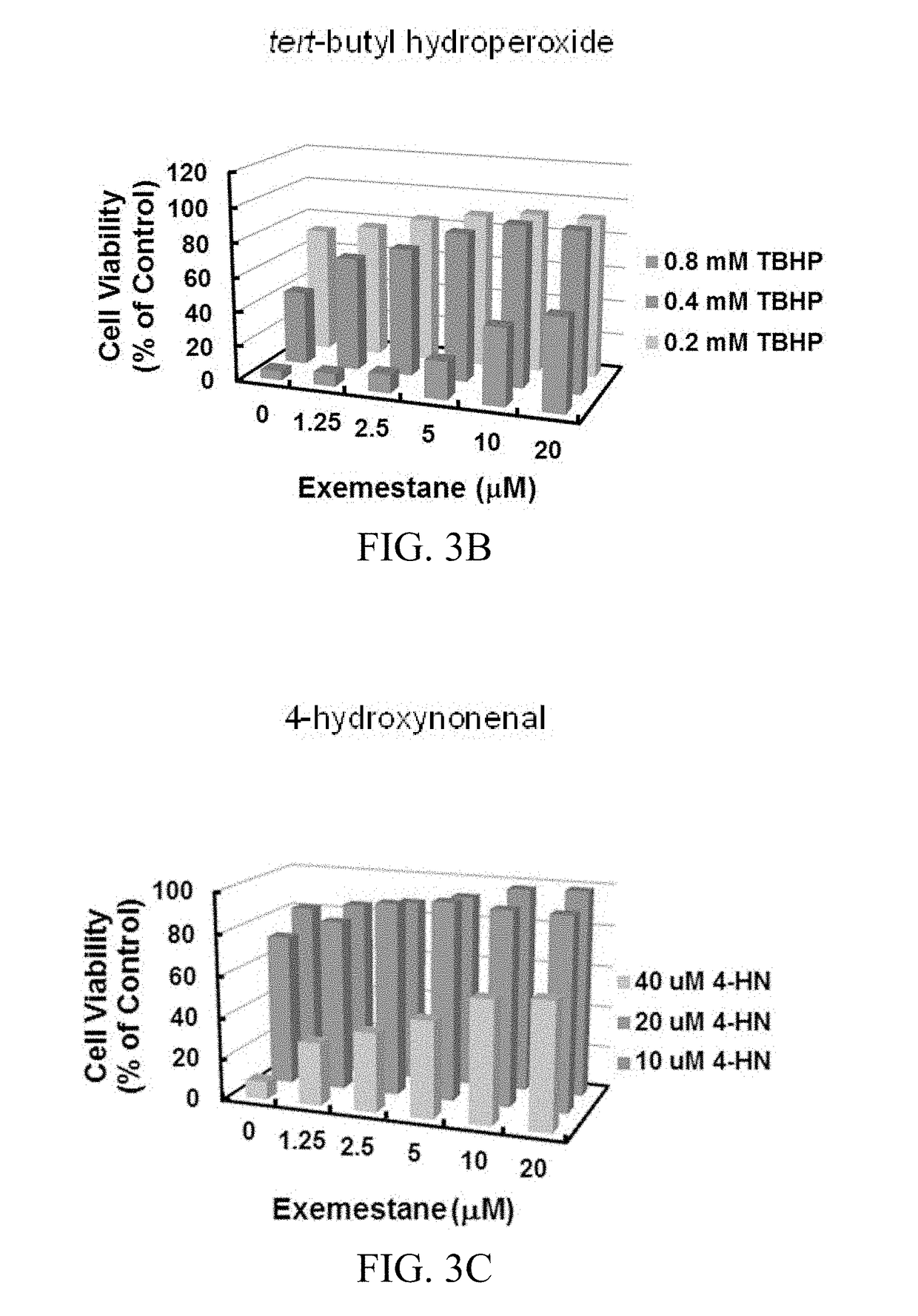Compositions comprising exemestane and novel methods of use
a technology of exemestane and composition, applied in the field of compositions comprising exemestane, can solve the problems of many problems in the implementation of chemoprevention/chemoprotection strategies, and the burden of new cases in the global market, and achieve the effect of powerful synergy and increase the attractiveness of exemestan
- Summary
- Abstract
- Description
- Claims
- Application Information
AI Technical Summary
Benefits of technology
Problems solved by technology
Method used
Image
Examples
example 1
Exemestane Induces NQO1 Transcription and Activities in Cultured Cells
[0136]The activity is not dependent on aromatase inhibition. The inventors first confirmed that exemestane induces the activity of NQO1, a prototypic phase 2 enzyme. In murine hepatoma Hepa1c1c7 cells, human retinal pigment epithelial ARPE-19 cells, murine keratinocyte 308 cells, and rat H9c2 myocardiocytes, inducer potencies of exemestane were comparable with, although modestly lower than, those of sulforaphane. The CD values for exemestane were 0.65 μM in Hepa1c1c7 and 308 cells, 2.2 μM in ARPE-19 and 2.9 μM in H9c2 cells, whereas the corresponding CD values for sulforaphane were 0.2 μM in Hepa1c1c7 and 308, 0.7 μM in ARPE-19, and 0.9 μM in H9c2, respectively. An impressive property of exemestane was its low toxicity. In all cell lines, exemestane showed no cytotoxicity up to 20 μM, the highest concentration tested, and increases in specific activities of NQO1 up to 4- to 12-fold were observed (FIG. 1A, B, C, D)...
example 2
Exemestane Induces NQO1 Activity In Vivo, on Mouse Skin
[0140]The ability of exemestane to induce the cytoprotective enzyme NQO1 in the skin of female SKH-1 hairless mice was evaluated next. These mice are immunocompetent but hairless because of a defect in the keratin biosynthesis cycle. Three topical applications of exemestane (0.5 or 1.0 μmol / / cm2 per application) at 24-hour intervals to the dorsal skin of SKH-1 mice (n=5) substantially elevated NQO1 activity (1.3- and 1.7-fold, respectively) in homogenates of skin (FIG. 2).
example 3
Exemestane Protects Human Retinal Pigment Epithelial Cells
[0141]Mouse Keratinocytes and Rat Myocardiocytes Against Oxidative Damage. Age-related macular degeneration (AMD) is the leading cause of blindness among the elderly in developed countries. In AMD, pathologic changes in the retinal pigment epithelium (RPE) have been observed early in the disease process, and reactive oxygen species (ROS) may be involved in RPE cell dysfunction and contribute to the development of AMD. The inventors tested whether exemestane could reduce ROS production in ARPE-19 by using the fluorescence-generating probe 2′,7′-dichlorodihydro-fluorescein diacetate (H2DCFDA). The results showed that prior treatment with exemestane suppressed ROS production stimulated by tert-butyl hydroperoxide in a dose-dependent manner (FIG. 3A). Treatment of ARPE-19 cells with a range of concentrations of exemestane for 24 hours, also protected against cytotoxicity of oxidants (tert-butyl hydroperoxide and 4-hydroxynonenal,...
PUM
 Login to View More
Login to View More Abstract
Description
Claims
Application Information
 Login to View More
Login to View More - R&D
- Intellectual Property
- Life Sciences
- Materials
- Tech Scout
- Unparalleled Data Quality
- Higher Quality Content
- 60% Fewer Hallucinations
Browse by: Latest US Patents, China's latest patents, Technical Efficacy Thesaurus, Application Domain, Technology Topic, Popular Technical Reports.
© 2025 PatSnap. All rights reserved.Legal|Privacy policy|Modern Slavery Act Transparency Statement|Sitemap|About US| Contact US: help@patsnap.com



